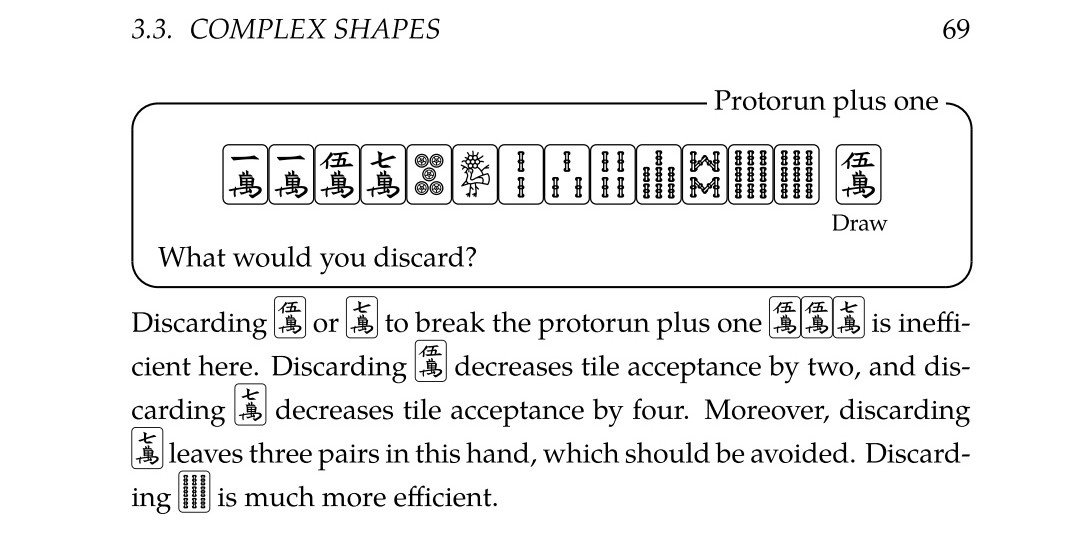- 5 Posts
- 3 Comments

 1·11 months ago
1·11 months agoThanks to your explanation I see my issue now. To find my 5 blocks I prioritize open waits, so I tend to see those kinds of 4 tiles shapes as 1 block + 1 useless tile. But if in the process I had to split a completed block into 1 open wait + 1 pair, my shanten goes back…
Splitting a completed block this way is very useful when I don’t have a pair yet, because the pair itself is a completed block so I essentially get a free open wait. But in this case I already had plenty of pairs so I just split a completed block into 2 uncompleted blocks, which I should do only when my hand doesn’t even have 5 blocks to begin with

 2·11 months ago
2·11 months agoHoly shit you’re right. Now I see it, thanks. Was it easy for you to see? Let me know if you have tips. I always look for 5 blocks, but here those that I saw were 333pin, 566pin, 23sou, 44sou and 668sou…
Thanks I didn’t know about this video series, very interesting! Now that I think about it Riichi Book 1 also mentions a rule of having optimally no more than 2 pairs, and even without any, that there’s no need to worry too much about securing a pair.
Apparently favoring the shuntsu over the pair is so obvious that in the below example Chiba doesn’t even consider discarding the 5pin holy shit…